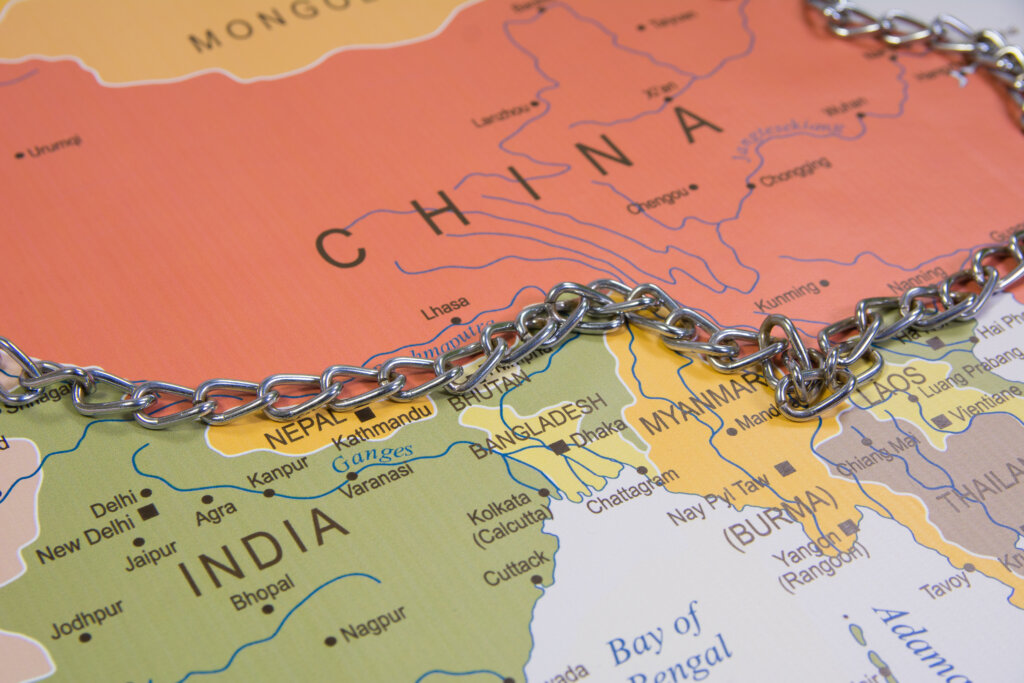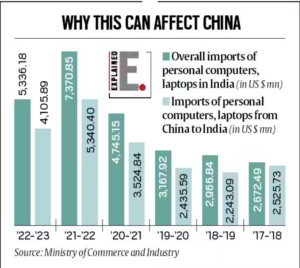
Starting in November, companies from Apple and Samsung to HP and Intel will need licenses to import such products into India. (Photo by FRED DUFOUR / AFP)
Laptop import ban by India: US tech giants call for reconsideration
- A coalition of US tech giants protested the abrupt way in which India introduced tech import restrictions this month, impacting electronics from small tablets to all-in-one PCs.
- Starting in November, companies from Apple and Samsung to HP and Intel will need licenses to import such products into India.
When Narendra Modi became the Indian Prime Minister, he was hailed as an economic liberalizer, having sharply criticized rising US protectionism under the Trump administration. Then India saw its economy undergoing a sharp downturn where domestic industries were under constant pressure. That was when Modi decided to strengthen trade barriers again. Today, the country is three months away from a new import ban coming into effect.
The latest trade-busting measure, announced on August 3 this year, would require Indian companies to get a license before importing personal computers, laptops, or even tablets. “Import of laptops, tablets, all-in-one personal computers, and ultra-small form factor computers and servers falling under HSN 8741 shall be ‘restricted,’ and their import would be allowed against a valid license for restricted imports,” stated the notice from the directorate general of foreign trade.
The government of India is convinced that reducing imports is necessary for its security and creating manufacturing jobs and especially hopes to reduce imports from China. In recent years, India has witnessed a notable surge in imports of electronic goods, particularly laptops and computers. In the period from April to June this year, the import of electronic goods escalated to US$6.96 billion, a substantial rise from US$4.73 billion in the corresponding period of the previous year.

More than 75% of India’s total US$5.33 billion imports of laptops and personal computers in 2022-23 were from China.
Source: Shutterstock
These electronic goods now constitute a share of four to seven percent out of the overall imports during this period. Now, the central government wants IT hardware manufacturers in India to achieve a localization of approximately 80 percent in value addition for the production of computers and other IT hardware within the coming years.
How’s the world reacting to the import ban by India?
So far, a broad coalition of US tech giants from Apple Inc. to Intel Corp. protested how India introduced tech import restrictions this month, saying the surprise move will damage the country’s ambitions to become a global manufacturing hub and harm consumers.
A report by Bloomberg indicated that eight American trade groups comprising the most prominent players in technology and manufacturing had sent a letter to the US officials last week asking the Department of Commerce, US Trade Representative, and government more broadly to urge India to reconsider the latest policy.
The South Asian nation’s plan to impose a new license requirement for tech imports will be effective starting November 1, 2023. The move “could significantly disrupt trade, hamper efforts to integrate India into global supply chains more closely, and harm businesses and consumers in both countries,” the trade groups said in a joint memo reviewed by Bloomberg News.
The licensing regime was implemented earlier this month before authorities allowed a three-month reprieve to let companies obtain the required licensing. Other US industry groups objected to the planned licensing rules, including the Information Technology Industry Council, the National Association of Manufacturers, and the Semiconductor Industry Association.
“Any barrier to trade could affect the shipment of US-made computers and electronics into India, which in turn could complicate the ability of businesses in the country, whether American or Indian, to run and expand their operations,” Bloomberg wrote. Multiple industry sources said the government’s action stemmed from the fact that its Production-Linked Incentive (PLI) scheme for IT hardware was finding little traction so far.
The scheme, revised in May, seeks applications for a 170 billion-rupee (US$2.1 billion) financial incentive plan to draw makers of laptops, tablets, and other hardware to the world’s most populous nation as companies diversify supply chains beyond China. Frankly, the country which exports the majority of laptops and computers to India is China.

Source: Ministry of Commerce and Industry India
More than 75% of India’s total US$5.33 billion imports of laptops and personal computers in 2022-23 were from the neighboring country. On the other hand, India makes up less than 3% of China’s laptop exports, according to online data.
Considering that, it would appear that Beijing does not care what New Delhi does to restrict trade in this space. For one, the more laptops assembled domestically, the more dependent India will be on China for parts because India’s domestic chip manufacturing capabilities fall distinctively short of where they need to be.
As for tech giants out of China, like Apple, HP, Asus, Acer, Samsung, and others will have to either start manufacturing their laptops in India or stop importing their gadgets to India. In all this, it’s likely the Indian consumer that will suffer on account of lower availability and higher prices. Instead of encouraging the domestic industry this way, India should consider subsidies and other incentives for local players rather than restricting market competition.
READ MORE
- Data Strategies That Dictate Legacy Overhaul Methods for Established Banks
- Securing Data: A Guide to Navigating Australian Privacy Regulations
- Ethical Threads: Transforming Fashion with Trust and Transparency
- Top 5 Drivers Shaping IT Budgets This Financial Year
- Beyond Connectivity: How Wireless Site Surveys Enhance Tomorrow’s Business Network


